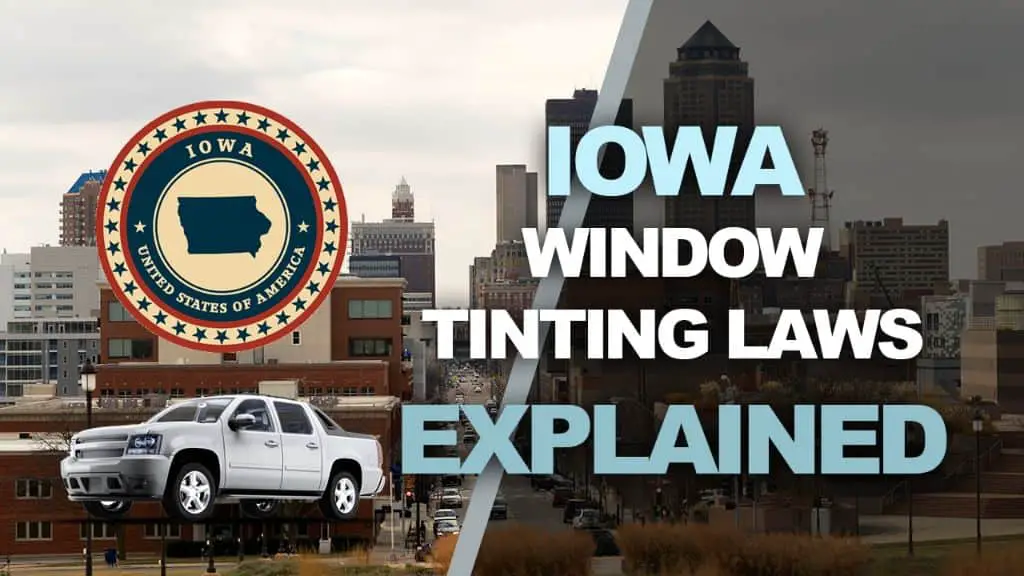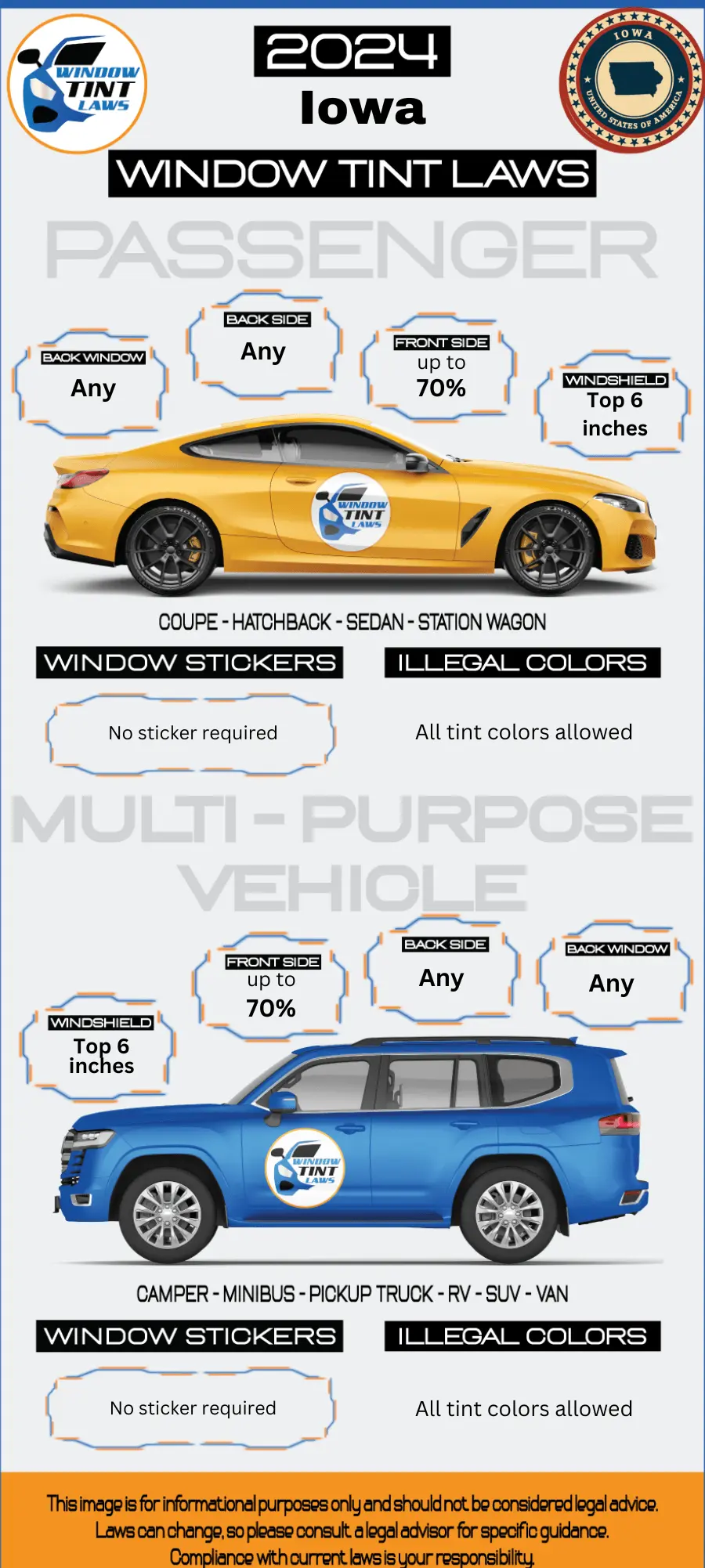

Article Created by Ryan Pietrzak
Last updated on February 14, 2024Iowa Tint Laws – 2024 Updated Legal Tint Limit
Please note that Iowa Tint Laws Regulation can change daily and may be interpreted differently at the city or county level. We recommend verifying this information with your local DMV or law enforcement agencies. We have manually fact-checked this content using official state resources. Iowa enacted tinting laws in 1983. If any information provided is incorrect or outdated, please contact us so we can make the necessary corrections. Thank you.
2024 Iowa Tint Laws – Legal Tint Limit For Passenger Vehicles
- Front Windshield: Non-reflective tint is allowed on the top 6 inches of the windshield.
- Front seat side windows: up to 70% tint darkness allowed. Must allow at least 70% of light transmission. This means tint can block up to 30% of light.
- Back seat side windows: Any tint darkness can be used
- Rear window: Any tint darkness can be used
2024 Iowa Tint Laws – Legal Tint Limit For Multi-Purpose Vehicles
- Front Windshield: Non-reflective tint is allowed on the top 6 inches of the windshield.
- Front seat side windows: Must allow more than 70% of light in.
- Back seat side windows: Any tint darkness can be used
- Rear window: Any tint darkness can be used

- Medical exemptions: Iowa tint law permits darker tints on front side windows with a doctor’s note
- Iowa tint law prohibits metallic or reflective tint on any of the windows
- Iowa tint law is statewide with no additional local regulations
- Violating Iowa tint law can result in a $50 fine plus court fees. Professional tint shops can apply the compliant film.
What does VLT Mean according to Iowa Tint Law?
- Window tint film’s light transmission is measured as VLT (Visible Light Transmission) and each state has its own legal limits for VLT on car windows.
- A HIGHER VLT means that more light is allowed to pass through the window tint film.
- Example: a 75% tint will allow 75% of the light to pass through whereas a 5% tint will only allow 5% of the light to pass through, making the 5% tint a much darker film.
- Iowa window tint laws has specific VLT limits for Passenger Vehicles and Multi-Purpose Vehicles.
FAQ’s Regarding Iowa Tint Laws and Iowa Legal Tint Limit
What is the darkest legal tint in Iowa?
In Iowa, the darkest legal window tint is 70% VLT (Visible Light Transmission) for the front side windows, and any darkness can be used on the rear side and rear windows. This means the front side windows must allow at least 70% of light in.
Are police exempt from window tint laws in Iowa?
In Iowa, police vehicles are generally exempt from the state’s window tint laws. This exemption allows law enforcement vehicles to have window tint that is darker than the legal limit for regular passenger vehicles.
How do I get a tint waiver in Iowa?
In Iowa, to obtain a window tint exemption for medical reasons, you must submit a completed Application for Window Tint Medical Exemption, which includes a physician’s statement, to the Iowa Department of Transportation. If approved, this exemption allows for window tint that is darker than the standard legal limits due to medical necessity..
How much is a tint ticket in Iowa?
In Iowa, the cost of a ticket for a window tint violation typically ranges from $50 to $100. However, the exact amount can vary depending on the county and the specific circumstances of the violation..
Can you get pulled over for tint in Iowa?
Yes, in Iowa, you can be pulled over by law enforcement if your vehicle’s window tint is suspected to be darker than what is legally allowed. This could lead to a ticket or a requirement to comply with the state’s tint laws.
How to get a Tint Exemption in Iowa
Iowa used to allow Window Tint Medical Exemption for medical reasons but since July 2012 they no longer allow darker tint. You are allowed to have tinted windows down to 35% VLT only if they were darkened prior to July 4, 2012, due to medical conditions. You must continue to carry your DOT form #432020 which was signed by a physician prior to this date at all times in your vehicle. If you have lost your form a new one can be acquired by contacting The Office of Vehicle and Motor Carrier Services.
Iowa Office of Vehicle & Motor Carrier Services
omcs@iowadot.us
515-237-3268
For more information regarding window tint medical exemptions in Iowa you can checkout this resource:

Ryan Pietrzak
Creator of Windowtintlaws.us
